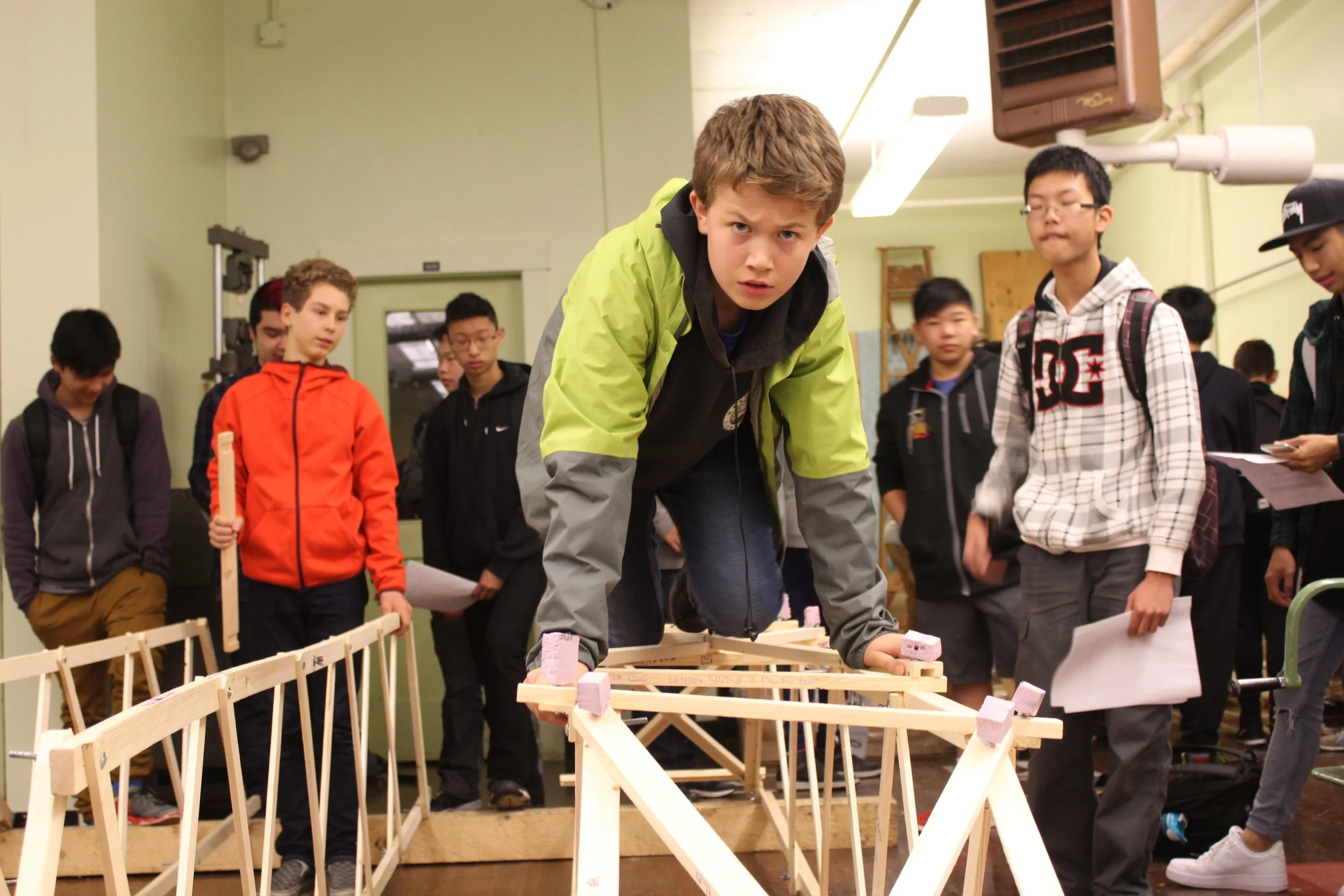Project-Based Learning (PBL) is an educational approach that uses projects to activate core competencies like communication, creative and critical thinking, and social responsibility. As a teaching philosophy, it has a uniquely Canadian history, first used as effective way to teach medicine at McMaster University in Hamilton, Ontario. There is a significant and growing body of research on the effectiveness of PBL and it is well established as being an excellent way to improve retention, deepen understanding, and increase engagement.
The goal in PBL is to introduce the student to subject knowledge in a way that is more authentic and mimics the practice of experts in that domain. Starting with a real-world problem, students are encouraged to explore, discuss, and prototype early solutions. During this time, it will become necessary to develop subject knowledge that is critical for the project’s success. When building a solar-tracking system, for example, students will encounter sinusodal and linear functions, basic circuitry, soldering, electronics, micro-controllers, coding, and the physics of semi-conductors and energy storage. Given the breadth of knowledge and exploration required, projects are usually between 4 and 6 weeks long.
The iterative design cycle is common to all projects. The idea behind iterations is to build solutions many times, building on the successes of past trials, and compensating for failures. This is encapsulated in our motto, “Fail Fast, Fail Often”. During this process, students develop critical analysis and technical skills that are the bedrock of creative and critical thinking. In this framework, failure is the ultimate teacher.
Finally, PBL is cooperative. In every project, students work in groups to develop key competencies in communication and social responsibility. This social learning approach is the lifeblood of the projects and there is a significant focus on developing strong project management skills including research, planning, design, presentation, testing, and analysis. Graduates from Templeton STEM program often comment that they are leagues ahead of their peers in this regard.


